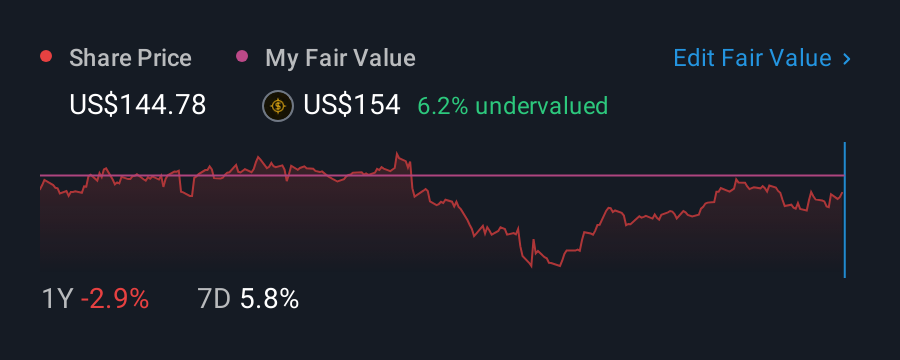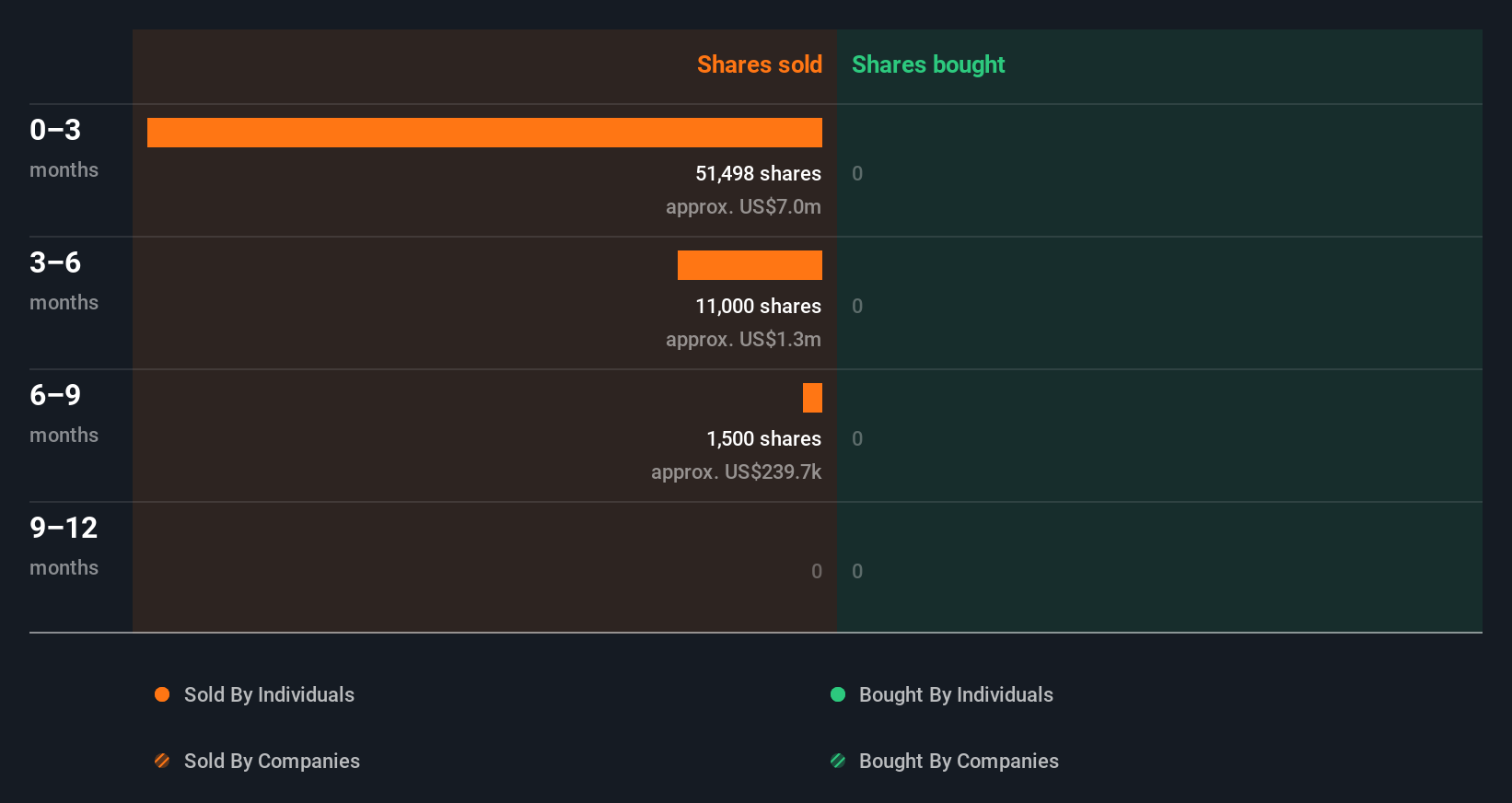

We wouldn't blame Hyatt Hotels Corporation (NYSE:H) shareholders if they were a little worried about the fact that Mark Hoplamazian, the President recently netted about US$6.8m selling shares at an average price of US$135. However, it's crucial to note that they remain very much invested in the stock and that sale only reduced their holding by 7.4%.
Hyatt Hotels Insider Transactions Over The Last Year
Notably, that recent sale by Mark Hoplamazian is the biggest insider sale of Hyatt Hotels shares that we've seen in the last year. That means that an insider was selling shares at slightly below the current price (US$145). As a general rule we consider it to be discouraging when insiders are selling below the current price, because it suggests they were happy with a lower valuation. While insider selling is not a positive sign, we can't be sure if it does mean insiders think the shares are fully valued, so it's only a weak sign. This single sale was just 7.4% of Mark Hoplamazian's stake.
In the last year Hyatt Hotels insiders didn't buy any company stock. The chart below shows insider transactions (by companies and individuals) over the last year. If you click on the chart, you can see all the individual transactions, including the share price, individual, and the date!
View our latest analysis for Hyatt Hotels

I will like Hyatt Hotels better if I see some big insider buys. While we wait, check out this free list of undervalued and small cap stocks with considerable, recent, insider buying.
Insider Ownership
For a common shareholder, it is worth checking how many shares are held by company insiders. Usually, the higher the insider ownership, the more likely it is that insiders will be incentivised to build the company for the long term. It's great to see that Hyatt Hotels insiders own 8.8% of the company, worth about US$1.2b. Most shareholders would be happy to see this sort of insider ownership, since it suggests that management incentives are well aligned with other shareholders.
What Might The Insider Transactions At Hyatt Hotels Tell Us?
Insiders sold stock recently, but they haven't been buying. And there weren't any purchases to give us comfort, over the last year. While insiders do own a lot of shares in the company (which is good), our analysis of their transactions doesn't make us feel confident about the company. While it's good to be aware of what's going on with the insider's ownership and transactions, we make sure to also consider what risks are facing a stock before making any investment decision. For instance, we've identified 4 warning signs for Hyatt Hotels (1 is potentially serious) you should be aware of.
If you would prefer to check out another company -- one with potentially superior financials -- then do not miss this free list of interesting companies, that have HIGH return on equity and low debt.
For the purposes of this article, insiders are those individuals who report their transactions to the relevant regulatory body. We currently account for open market transactions and private dispositions of direct interests only, but not derivative transactions or indirect interests.
Have feedback on this article? Concerned about the content? Get in touch with us directly. Alternatively, email editorial-team (at) simplywallst.com.
This article by Simply Wall St is general in nature. We provide commentary based on historical data and analyst forecasts only using an unbiased methodology and our articles are not intended to be financial advice. It does not constitute a recommendation to buy or sell any stock, and does not take account of your objectives, or your financial situation. We aim to bring you long-term focused analysis driven by fundamental data. Note that our analysis may not factor in the latest price-sensitive company announcements or qualitative material. Simply Wall St has no position in any stocks mentioned.